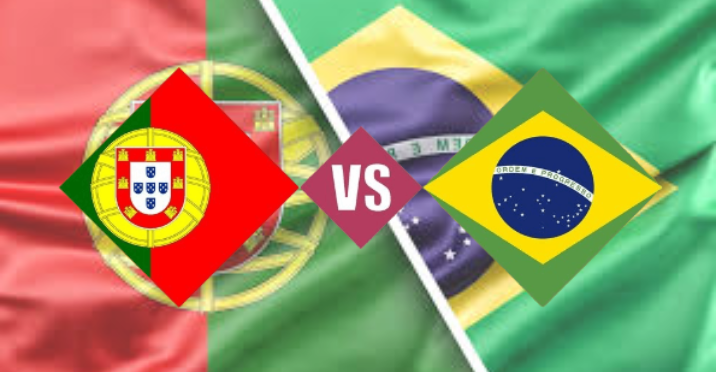Brazilian and European Portuguese: What is the Difference?



Portuguese language, spoken by over 250 million people across the globe, is the official language of nine countries, including Brazil and Portugal. But, like many languages spoken across different regions, Portuguese language has two main variants: Brazilian Portuguese and European Portuguese. If you are considering it to learn Portuguese language, it is crucial to understand the difference between these two variants and which one should suit your career the most.
Although there is not much difference in the written part, Brazilian and European Portuguese sound like two completely different languages when heard. This is because of the accent. Brazilian Portuguese is often described as having a melodic and open sound, making it easier for some learners to grasp. In Brazil, vowels are pronounced more clearly and openly, and the rhythm of the language tends to be slower. This can make Brazilian Portuguese sound more expressive and flowing to non-native ears.
On the other hand, European Portuguese is often characterized by a more clipped and closed pronunciation. Some vowels may be muted or shortened, giving the language a faster, more condensed rhythm. It is often said that the Portuguese people like to eat their words. This makes European Portuguese sound more formal and, for some learners, more challenging to master.
Want to perfect your accent? Linguapol’s customized courses for both Brazilian and European Portuguese language can help you master pronunciation with ease. Learn Portuguese language online with expert instructors!
Just as American English differs from British English in vocabulary, so too does Brazilian Portuguese differ from European Portuguese. Everyday words can vary significantly between the two dialects. For example, the word for “bus” in Brazil is “ônibus,” while in Portugal, it’s “autocarro.” Similarly, the word for “cell phone” is “celular” in Brazil, but “telemóvel” in Portugal.
These vocabulary differences don’t just stop at everyday objects; they extend to slang, expressions, and even formal language. While both dialects share the same root, being aware of these differences is essential, especially if your goal is to use Portuguese professionally or socially in a specific region.
Expand your vocabulary with Linguapol’s tailored language courses. Whether you want to learn Brazilian Portuguese online or learn European Portuguese online, we’ve got you covered!
The core grammar of Brazilian and European Portuguese remains the same, but certain usages differ, particularly in informal communication. Brazilian Portuguese tends to simplify some grammatical structures, making it more accessible for learners. For instance, in Brazil, the subject pronoun “você” (you) is used more frequently in place of the more formal “tu,” which is still common in Portugal. This leads to different verb conjugations and sentence structures.
European Portuguese retains more of the traditional grammar rules, including the use of formal pronouns and complex verb forms. This can make it seem more rigid, but it also reflects the linguistic and cultural formality of Portugal.
Get a grip on grammar with Linguapol’s custom courses that fit your needs. Whether you are tackling European or Brazilian Portuguese, our personalized approach ensures you’re fluent in no time. Learn Portuguese online with ease!
The decision between Brazilian and European Portuguese ultimately depends on your personal or professional objectives.
• For the Corporate World: If you are entering the global job market, Brazilian Portuguese is likely the best option. Brazil’s economy is the largest in Latin America, and many multinational companies operate within the country. Learning Brazilian Portuguese online can open doors to new business opportunities and connections across the entire Portuguese-speaking world.
• For Life in Portugal: If you are planning to live, work, or travel extensively in Portugal, European Portuguese is the clear choice. Mastering the local dialect will help you integrate into Portuguese society and navigate daily life, from ordering a coffee in Lisbon to closing business deals in Porto.
Whether your path leads to the bustling streets of São Paulo or the historic charm of Lisbon, Linguapol’s customized courses are designed to help you achieve fluency. Learn Brazilian Portuguese online or learn European Portuguese online with our expert-led programs!
While Brazilian and European Portuguese share a common foundation, they differ significantly in pronunciation, vocabulary, and grammar. Understanding these differences is crucial for choosing the right dialect for your language learning journey. Whether your goal is to break into the corporate world in Brazil or start a new life in Portugal, knowing which Portuguese to learn will set you up for success.
With Linguapol, you can tailor your language learning experience to suit your specific needs. Our expert instructors offer personalized courses in both Brazilian and European Portuguese, allowing you to learn Portuguese online at your own pace and on your own terms. Ready to start your journey? Enroll today and take the first step toward fluency!